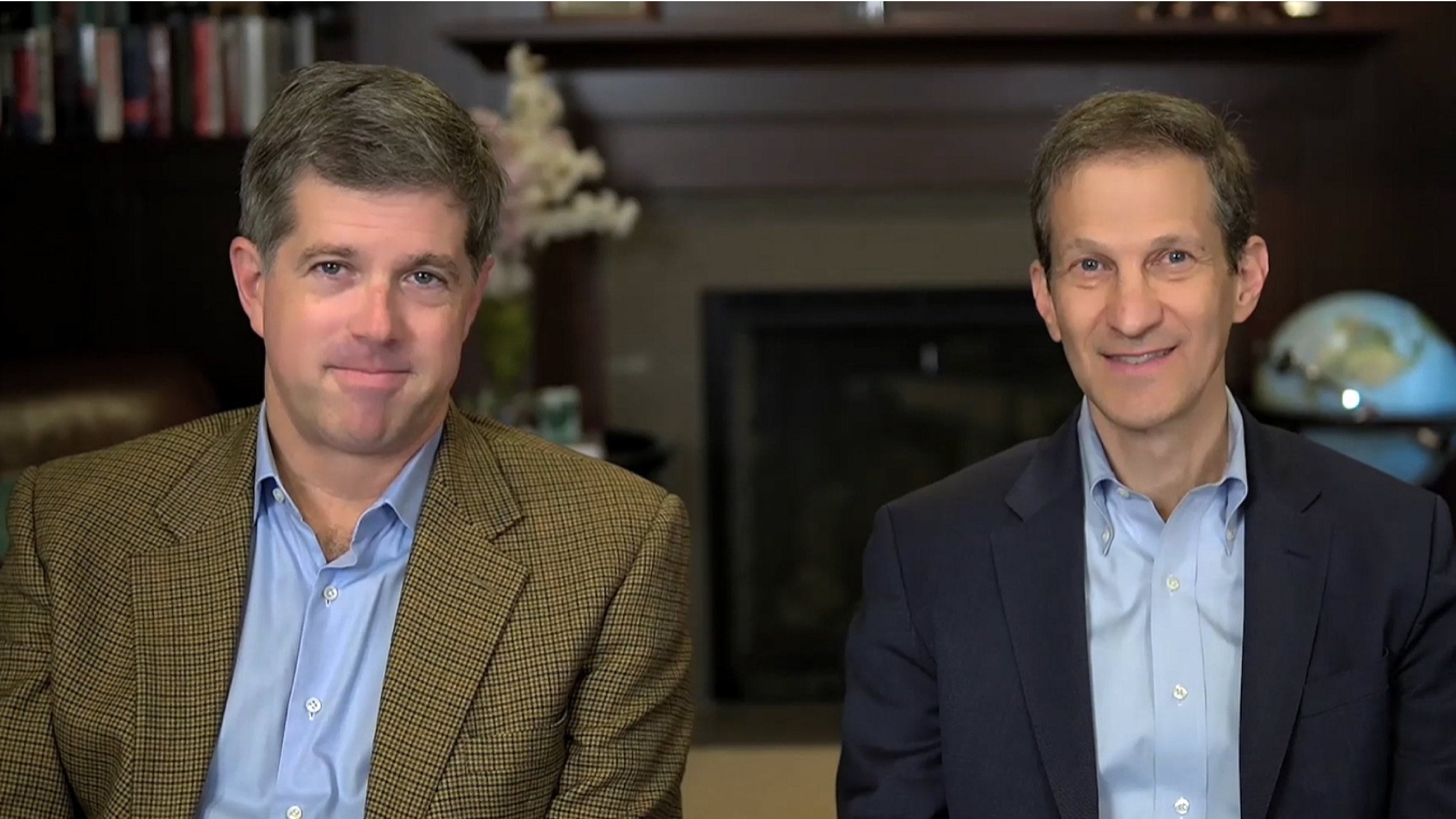
Monthly Market Roundup
In our monthly market roundup for August, Invesco experts review a mixed month for global equity markets, alongside key updates in fixed income.

In so many nations around the world, you're seeing a populist anti-elitist movement.
The debate was a great opportunity for Harris to shine, but she'll need to keep that up to defeat Trump.
Next year is going to be a big year for US tax policy because there’s so many tax revisions that are expiring.
The debate between Kamala Harris and Donald Trump was watched by more people than the Super Bowl. As the US presidential race intensifies, what do political strategists think?
In the second of our three-part webinar series on the US presidential election, Invesco’s Andy Blocker and Jennifer Flitton talk to political strategists Bruce Mehlman and David Thomas on their opinions following the debate. As part of their careers in politics, Bruce served in the administration of Republican President George W. Bush, and David worked for the team of Democratic Vice President Al Gore.
Covering views from both sides of the political aisle, our two guests debated the state of the race and what they think a Harris or Trump victory could mean for the US economy and investors.
Read our key takeaways from our politics webinar. Watch the webinar replay to see the full conversation. (Passages below have been edited for length and clarity.)
Bruce Mehlman: When we think about America's politics right now, we also look at the EU, UK and France. In so many nations around the world, you're seeing a populist, anti-elitist movement as the world has failed to adjust to three broad changes.
David Thomas: If you look at the most recent polls, 75% of Americans think that our country is moving in the wrong direction. That's a problem if you happen to be the people in power here, because that’s as wide as that number has ever been.
Bruce Mehlman: Ultimately a lot of the institutions and systems that govern our lives aren't delivering for most people.
So, we and you guys as an institution see a lot of macro benefits in, say trade. But for your average American, trade is why has the factory been sent to China? The assembly work was moved to Mexico and the IT jobs were sent to Bangalore?
David Thomas: Joe Biden dropped out of the presidential race because he had a very bad debate performance. That sort of crystallised the Democratic Party realising if we stick with this guy, we are going to lose and lose big. Donald Trump will be back in the White House.
Kamala Harris very quickly became the standard bearer for the Democratic Party. What she has been able to do is remarkable.
Harris has basically brought it back to an even race again. But, because of the way our system is set up with the Electoral College, certain states are the ones that are going to determine this election. There are seven states that could go one way or the other.
David Thomas: The Nielsen numbers coming back from the debate show somewhere between 70 and 80 million Americans watched that debate. That is extraordinary. That is more than a Super Bowl here in the United States.
So, that was a great opportunity for her to shine. But she's going to have to keep that up. Everybody knows who Donald Trump is. Her challenge is she’s got to get people comfortable with her.
Bruce Mehlman: Her game plan was to win on looking presidential, on seeming positive, on being prepared and to put all of the onus on Trump. She executed her plan.
But there's still a whole lot of questions that I believe she's going to have to answer. How much of the Biden record does she embrace? What does she distance herself from? How much of her way-out-of-the-mainstream positions in 2020 does she still embrace, and how many has she flipped on?
David Thomas: Yes. She had a plan. She goaded him, and he took the bait, hook, line and sinker. There's a reason why he said no more debates.
Bruce Mehlman: He had one job going into this debate, to force her to explain the Biden-Harris record and her positions from 2020 and if she's changed and why. He just didn't do it.
David Thomas: In an election which is going to be very close, things like debates matter. Does it make people turn out? Does it get people more comfortable with Harris serving as president? It probably did.
Bruce Mehlman: We do have a debate on October 1st among the Vice-Presidential nominees, and I'm looking forward to that one, because that that should be a knock-down, drag out — from a political, professional perspective — really interesting, fun debate.
David Thomas: The challenge for Democrats is they turn out in California and New York, and that's not going to get a President Harris into the White House. They need to turn out the voters in the swing states.
Bruce Mehlman: Harris has raised an insane amount of money. So, what that means is the Democrats can transfer dollars to the Senate and House campaigns. The Democrats now have a more mature operation to get out the early vote, that's better funded.
Trump, by attacking early voting, even though he probably will early vote this time and by attacking voting by mail, even though he's always voted by mail, has undermined decades of what the Republicans have built up. That hurts the party.
David Thomas: About a third of the Senate is up for election this year. It overwhelmingly favours Republicans here. It’s not just that the Democrats are defending more seats, it’s the states that they’re defending. The divide right now in the Senate is 51-49 for Democrats. It’s razor close right now. At the end of the day, I think the Senate flips. It’ll still be close, but Republicans will be in charge.
Bruce Mehlman: Tell me who wins the White House, and that's the same party that picks up the House, but it'll be razor thin.
David Thomas: Next year is going to be huge in terms of tax policy because we have so many tax revisions that are expiring and we have a number of tax revisions that haven't been renewed.
So, there is a lot on the table that gives incentive to members on both sides of the aisle to try to come together for a deal.
Now, obviously this depends on who's in the White House and who has the gavels in the House and Senate. But House members and Senators are already getting organised.
If it's Donald Trump, if he has the House and the Senate with him, he will carve a path to have much bigger tax cuts and to be able to protect his original tax cuts. If Harris is in there, she will likely have a divided Congress. And that makes it a little bit more challenging for her early on.
David Thomas: Number one is foreign policy. She will continue where President Biden has been working with our allies in Europe, strengthening NATO. Providing aggressive challenges to China, although China, they are similar on.
But I would say as far as where we are in Europe, that's a very different from where President Trump is going to be. We know where he was before the first time. That is number one.
Number two is immigration policy.
Number three is climate issues. Trump doesn't believe in climate change, Harris does.
And number four is DEI (diversity, equity and inclusion). They couldn't be more different on those issues.
Bruce Mehlman: The presumption is a Harris presidency would be very consistent with what we've seen in the last four years of Biden.
Trump thinks tariffs are good. He thinks they are a valuable economic policy. He thinks they don't cause inflation.
Will there be violence after the US election result is decided?
David Thomas: We obviously hope there won't be violence, around this election. But could there be? Yes, passions are very high. We hope this election goes smoothly.
At least the Federal government is preparing to be ready for that kind of thing. They announced that the counting of the electoral votes will be a special, security event in Washington to try to avoid what happened on January 6th, four years ago.
Bruce Mehlman: I continue to think that Trump will win, because ultimately people are not happy with the last four years. They want to vote for change.
But my conviction keeps getting smaller, because it turns out Kamala Harris is a lot better than she was four years ago.
David Thomas: I think it's the change candidate who will win, and Kamala Harris is coming across as the change candidate, as strange as that may sound, being a sitting Vice President.
This is going to be a razor thin close election. But look, she's got an ace in the hole. She got endorsed by Taylor Swift. Around 400,000 people registered to vote after she put up the Instagram post.
You can watch the replay of our webinar on-demand and sign up to our next webinar on the results of the 2024 US presidential race.
With several provisions of the Tax Cuts and Jobs Act (TCJA), the 2017 Trump tax reform, expiring at the end of 2025, debates over tax policy will take center-stage next year regardless of who wins the White House.
Both candidates are making aspirational promises, focusing on segments of the electorate as they tout their tax reform priorities on the campaign trail. However, no matter who sits in the White House next year, it will be Congress drafting the legislation, and the expectation is that the negotiations between the House, Senate, and the White House will be all-consuming and take up the better part of next year.
The specific Harris proposals to increase the corporate tax and establish a tax on unrealised capital gains has been suggested as a revenue raiser. The aim is to permanently fund a limited number of high-impact social programs, not necessarily to spur economic growth.
Few in Washington consider the possibility of Congress and the White House agreeing on a 25% tax on unrealised gains likely. So, it’s hard to get a consensus economic projection on potential impacts. Additionally, there are serious constitutional questions surrounding proposals to tax unrealised gains.
Recent Gallup polling has shown that mass media, cable news and traditional newspapers, have experienced a significant decline in public confidence in recent years.
In 1995, 62% of Americans claimed to get their news from traditional cable stations, today only 24% claim the same. It’s not surprising then that social media is now filling that void, which has provided a relatively convenient (albeit less reliable) way for Americans to receive their news. Like many nations around the globe, the United States is struggling with how to regulate truly “fake news” and the issue of “deep fakes.” If past history is instructive, it would seem likely that the states will continue to take action before the federal government comes up with a comprehensive policy.
The polls which were so off in 2016 were also consistently under-representing Trump voters in 2020. It remains to be seen if the screening methodology has improved in 2024. With all reviews of polling, it is more helpful to look at trendlines and averages than individual polls.
In general, the sun belt states continue to see increases in population including the swing states of Nevada and Arizona.
When focusing on the Latino vote within those swing states, Donald Trump received roughly 1/3 of the Latino vote, improving slightly
between 2016 and 2020. Democrats won the Latino vote in every state, but the margins are shrinking.
Both parties have become weary of large trade deals over the past decade. Both Donald Trump and Joe Biden seemed comfortable using tariff policy to influence trade, but no matter who wins, the focus on China will likely not dissipate.
Each candidate presents challenges for the business community. Harris would endeavor to raise corporate taxes and increase regulation.
Trump would push aggressively for lower corporate taxes and less regulation, focusing in particular on federal assistance to the energy sector. However, the business community has raised concerns with Trump’s proposals restricting immigration (which could have an effect on workforce stability) and instituting sweeping tariffs (which could have an inflationary effect).
The system is structured to make it very difficult to disrupt the Fed’s independence. Any formal changes to the operations and/or independence of the US Federal Reserve would require Congressional approval to amend the Federal Reserve Act. Such a change to the statute would need 60 votes in the Senate, an exceedingly high hurdle.
The Electoral College was established in the U.S. Constitution, as a compromise between the election of the President by a vote in Congress and the election of the President by a popular vote.
Since this process is part of the original design, it would be necessary to pass a Constitutional amendment to change the system. This is an extremely high hurdle, as an amendment to the Constitution must be proposed by two-thirds of a majority in both the House and Senate, and then ratified by three-fourths of the states.

In our monthly market roundup for August, Invesco experts review a mixed month for global equity markets, alongside key updates in fixed income.

The Middle East dominated the news, but beyond oil and gas, most markets haven’t yet reacted heavily. Central banks remain in somewhat of a wait-and-see mode.

Geopolitical uncertainty immediately triggered a flight to "safe haven” assets, but the US dollar was largely unaffected.


Sign up to receive the latest insights from Invesco’s global team of experts and details about on demand and upcoming online events.